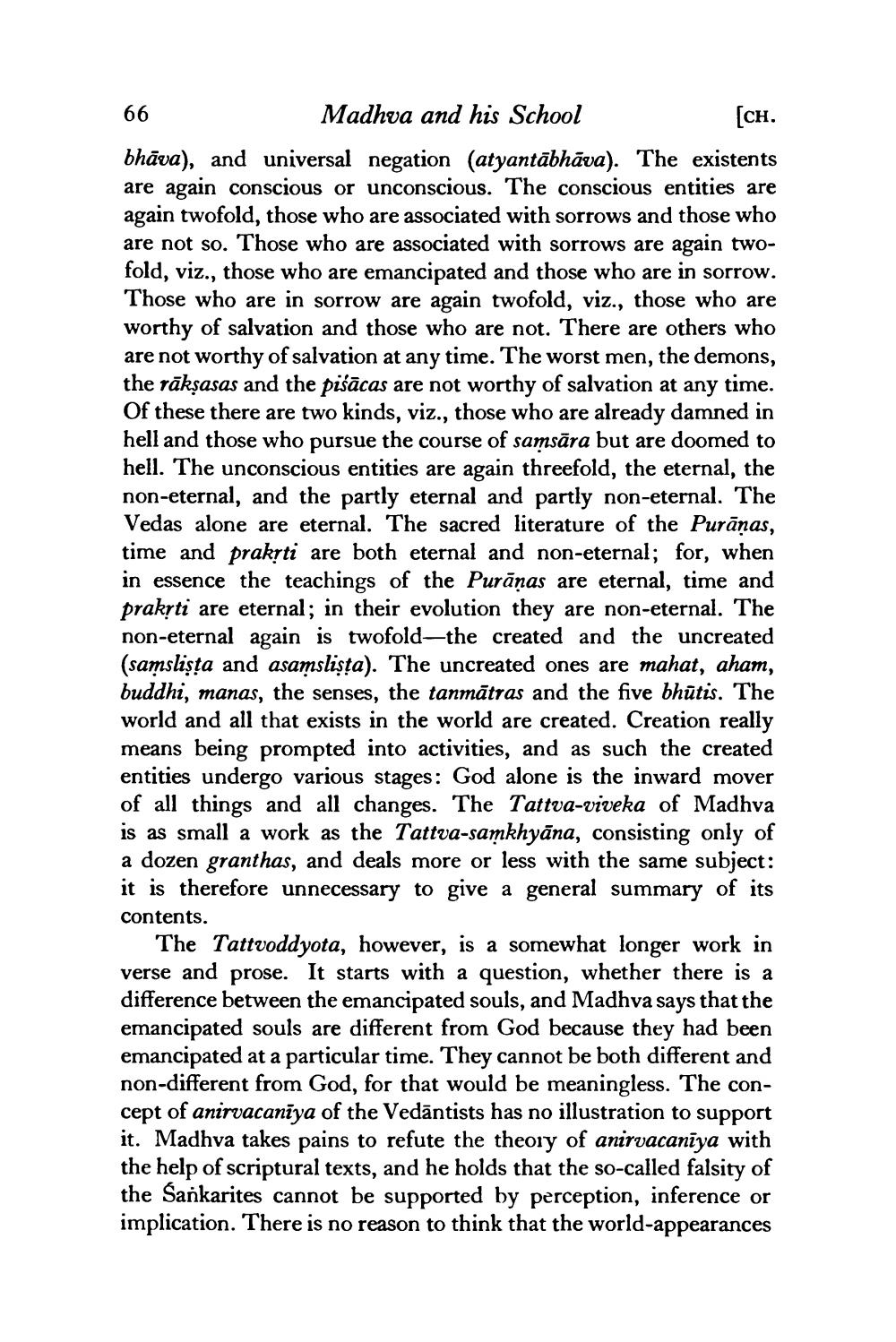________________
Madhva and his School
[CH.
bhāva), and universal negation (atyantābhāva). The existents are again conscious or unconscious. The conscious entities are again twofold, those who are associated with sorrows and those who are not so. Those who are associated with sorrows are again twofold, viz., those who are emancipated and those who are in sorrow. Those who are in sorrow are again twofold, viz., those who are worthy of salvation and those who are not. There are others who are not worthy of salvation at any time. The worst men, the demons, the rākṣasas and the pisacas are not worthy of salvation at any time. Of these there are two kinds, viz., those who are already damned in hell and those who pursue the course of samsara but are doomed to hell. The unconscious entities are again threefold, the eternal, the non-eternal, and the partly eternal and partly non-eternal. The Vedas alone are eternal. The sacred literature of the Purāņas, time and prakṛti are both eternal and non-eternal; for, when in essence the teachings of the Purānas are eternal, time and prakṛti are eternal; in their evolution they are non-eternal. The non-eternal again is twofold-the created and the uncreated (samslista and asamsliṣṭa). The uncreated ones are mahat, aham, buddhi, manas, the senses, the tanmātras and the five bhūtis. The world and all that exists in the world are created. Creation really means being prompted into activities, and as such the created entities undergo various stages: God alone is the inward mover of all things and all changes. The Tattva-viveka of Madhva is as small a work as the Tattva-samkhyāna, consisting only of a dozen granthas, and deals more or less with the same subject: it is therefore unnecessary to give a general summary of its
contents.
The Tattvoddyota, however, is a somewhat longer work in verse and prose. It starts with a question, whether there is a difference between the emancipated souls, and Madhva says that the emancipated souls are different from God because they had been emancipated at a particular time. They cannot be both different and non-different from God, for that would be meaningless. The concept of anirvacaniya of the Vedantists has no illustration to support it. Madhva takes pains to refute the theory of anirvacaniya with the help of scriptural texts, and he holds that the so-called falsity of the Sankarites cannot be supported by perception, inference or implication. There is no reason to think that the world-appearances
66




